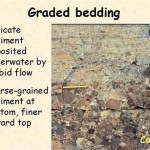What Is The Meaning of Bedding Mortar?
Bedding mortar is a crucial component in various construction projects, particularly in masonry work. It serves as the adhesive that binds building blocks together, ensuring structural integrity and stability. Understanding the meaning of bedding mortar and its role in construction is essential for both professionals and homeowners alike.
Understanding the Basics of Bedding Mortar
Bedding mortar is a type of mortar specifically designed for laying building blocks, such as bricks, blocks, and stones. It is a mixture of cement, sand, and water, with the proportions varying depending on the application and desired properties. The primary function of bedding mortar is to create a strong and durable bond between the building blocks, ensuring that the structure remains stable and withstands various loads and stresses.
The consistency of bedding mortar is crucial for its effectiveness. It should be sufficiently workable to allow for proper placement and leveling of the blocks, but also firm enough to support the weight of the blocks without sagging or slumping. The thickness of the mortar bed, also known as the mortar joint, is another important factor. It should be consistent and typically ranges from 10mm to 15mm, depending on the type of block and the specific requirements of the project.
Key Properties of Bedding Mortar
Bedding mortar possesses several key properties that make it suitable for its intended purpose. These properties include:
1. Adhesion
Bedding mortar must have strong adhesive properties to create a firm bond between the building blocks. This adhesion is achieved through the chemical reaction between the cement and water, which forms a hardened matrix that effectively binds the blocks together.
2. Workability
The mortar must be workable enough to allow for easy placement and leveling of the blocks. This is achieved by adjusting the water content and the sand-to-cement ratio. A workable mortar will spread evenly and conform to the shape of the blocks, ensuring a consistent bond.
3. Strength
Bedding mortar must possess sufficient strength to withstand the weight of the building blocks and any additional loads that the structure may experience. The strength of the mortar is determined by the type and quality of cement used, as well as the curing process.
4. Durability
Bedding mortar should be durable and resistant to weathering, moisture, and other environmental factors. This ensures that the bond between the blocks remains strong over time and prevents the structure from deteriorating.
5. Flexibility
While bedding mortar provides a strong bond, it also needs to be slightly flexible to accommodate minor movements in the structure. This flexibility helps to prevent cracking and ensures the long-term stability of the building.
Types of Bedding Mortar
There are various types of bedding mortar available, each with specific properties and applications. Some common types include:
1. Standard Mortar
Standard mortar is a general-purpose mortar suitable for most masonry applications. It is typically a mixture of Portland cement, sand, and water, with a ratio of 1:3:0.5 (cement:sand:water). This type of mortar offers good adhesion, workability, and strength.
2. High-Strength Mortar
High-strength mortar is designed for applications where greater strength and durability are required. It typically uses a higher proportion of cement and may include additives to enhance its properties. This type of mortar is often used for load-bearing walls, foundations, and other critical structural elements.
3. Flexible Mortar
Flexible mortar is designed to accommodate movement in the structure, reducing the risk of cracking. It typically contains additives that improve its flexibility and allow it to stretch and compress without breaking. This type of mortar is often used for masonry projects where movement is expected, such as in areas with seismic activity.
4. Waterproof Mortar
Waterproof mortar is formulated to resist water penetration and is often used in areas exposed to moisture, such as basements, showers, and exterior walls. It typically contains additives that create a water-resistant barrier, preventing water from seeping through the mortar joints.
Importance of Proper Bedding Mortar Selection
Choosing the right type of bedding mortar is crucial for the success of any masonry project. The type of mortar selected should be appropriate for the specific application, considering factors such as the type of block, the load-bearing capacity, the environmental conditions, and the desired properties of the structure. Improper mortar selection can lead to structural problems, such as cracking, weakening, and premature failure of the building.
Consulting with a qualified mason or structural engineer is recommended to ensure that the appropriate type of bedding mortar is chosen for the project. They can assess the specific requirements and provide expert advice on the best mortar solution for the desired outcome.

Laying Courses And Bedding Materials For Flags Slabs Pavingexpert

Ultrascape Eco Bed 32 X 25kg Bags 15 99 Vat Per Bag

Laying Courses And Bedding Materials For Flags Slabs Pavingexpert

Masonry Mortar Types And Joints Archtoolbox

Laying Courses And Bedding Materials For Flags Slabs Pavingexpert

Bonded Vs Unbonded Mortar Beds For Tile Floors

Ultrascape Perma Bed Permeable Bedding Mortar 20 95 Vat

Masonry Mortar Types And Joints Archtoolbox

How To Guides Paving Stones Direct

Installation Series Bagged S High Strength Bedding Mortar








